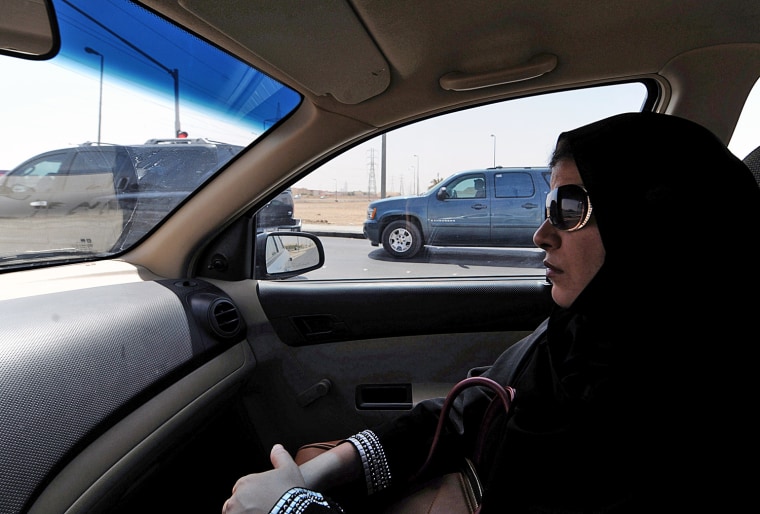RIYADH, Saudi Arabia – Many women in Saudi Arabia have had it. They want the right to drive and argue there is no religious justification for them not to.
The oil rich country of 27 million is the only nation in the world where women are forbidden to drive.
Saudi female activists who want the Kingdom to lift the de facto ban have launched an online campaign urging women to drive on Oct. 26.
Over 10,000 women have already signed the oct26driving.com declaration that says: “Since there are no clear justifications for the state to ban adult, capable women from driving. We call for enabling women to have driving tests and for issuing licenses for those who pass.”
Although there is no traffic law that specifically prohibits women from driving, religious edicts are often interpreted to mean women are not allowed to operate a vehicle.
This is not the first effort to overthrow the ban, but organizers hope to get more traction this time on the heels of recent comments by the newly appointed head of the morality police.
"Islamic sharia does not have a text forbidding women driving," said Sheikh Abdulatif Al al-Sheikh, who was appointed by Saudi's ruler King Abdullah last year to head the Commission for the Promotion of Virtue and the Prevention of Vice.
He said that the morality police had not pursued or stopped any women for driving since he was made head of the organization in a recent interview with Reuters.
His comments were a departure from the hardline attitude of his predecessors with regards to this highly contentious issue.
King Abdullah has pushed for cautious social and economic reforms in the world’s top oil exporter, including greater rights for women.
“I think that the time is right to allow women to drive because the whole of the Arab world is changing,” said Hanan, a young Saudi mother of two teenage girls who only gave her first name because of the sensitivity of the issue.
“The government has taken gradual steps towards this as they have been educating more and more women and increasing the opportunities and outlets for them."
In May 2011, prominent Saudi women’s rights activist Manal al-Sharif was arrested and spent more than a week in jail for getting behind the wheel after she posted a YouTube video of her foray. She was hailed as a hero by women across the country and her arrest inspired the Women2Drive campaign a month later. About 70 women flouted the unwritten regulations and got behind the wheel.
Still, opinions in this deeply conservative country have been mixed, with some women welcoming the push for greater rights and others believing that such open defiance will only set the cause back like it did during the first campaign in 1991.
“I don’t agree with women driving in Saudi,” remarked Hawazen, a mother and a college graduate who also declined to give her last name. “Maybe it will help, but maybe it will make things worse. Eighty percent of the people in this city are not open-minded and won’t accept it.”
When asked if she would allow her teenage daughter to drive should the ban be overturned, she shrugged and admitted, “My grandmother learned to ride a horse in the north of Saudi Arabia and then learned to drive. My 14-year-old daughter is already choosing the car she wants with her father who fully supports this.”
For many women, the driving issue is a visually symbolic one bringing much needed attention to deeper women’s rights issues of guardianship and custody.
“You can’t send Saudi women abroad for years where they live an independent life and then pretend that you didn’t think about the repercussions when they come back,” complained Reem, a housewife from an upper middle class family who also spoke on the condition of anonymity. “You cannot take people out of the box and then put them back in the box again.”
There is also the question of the financial burden the driving ban places on many middle class families. Drivers cost the Saudi economy hundreds of millions of dollars a year.
“If the government doesn’t let women drive then they should be responsible for paying the salaries of drivers and the cost it incurs to import them,” argued Hanouf, a 30-year-old administrator in academic affairs at Al Faisal University.
“I know many girls who can’t turn up for work or university because their fathers are sleeping, or their brothers are busy, and they have no other means of transportation.”
Asked if she would drive if it were allowed she says, “No, I would never drive. But this is not the point!
“I don’t think the concept is for all of us to drive. We are waiting to be told the reasons as to why we can’t drive!”
